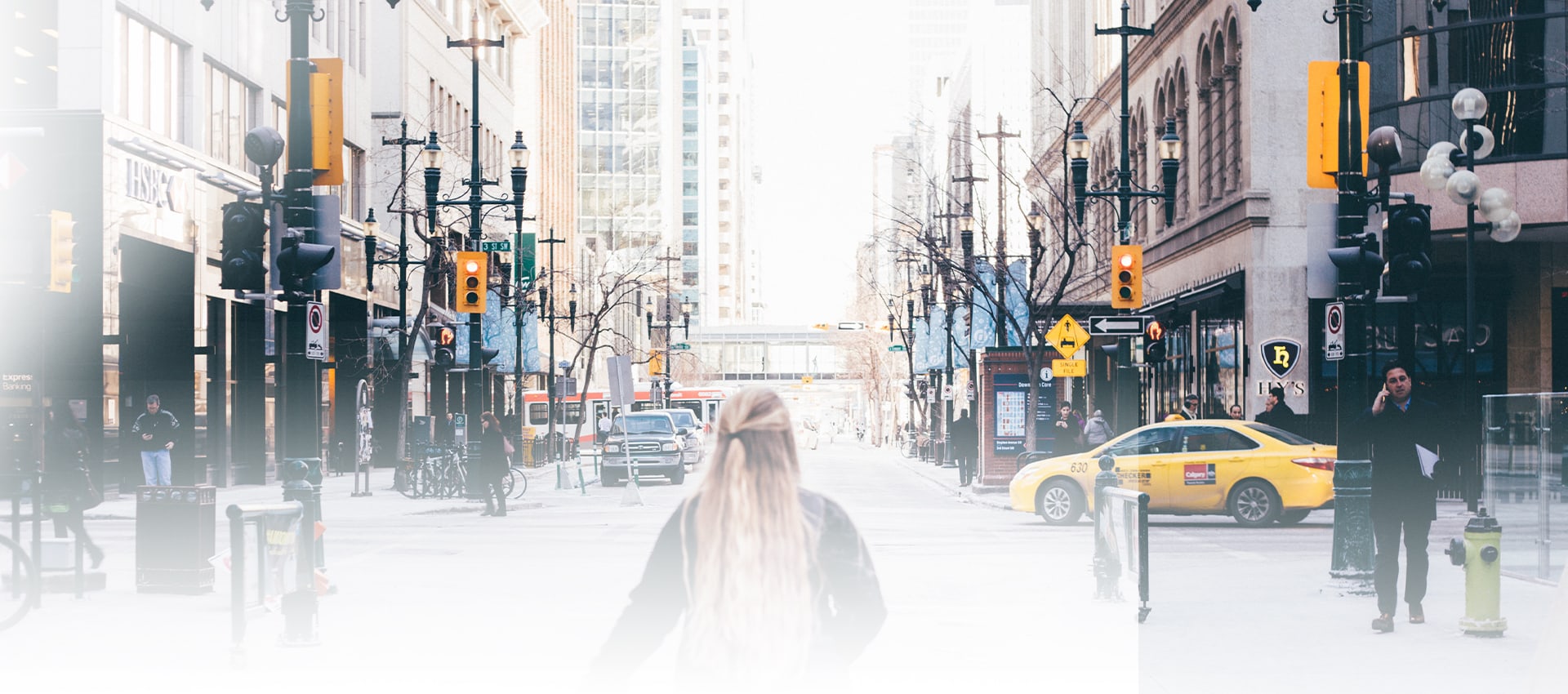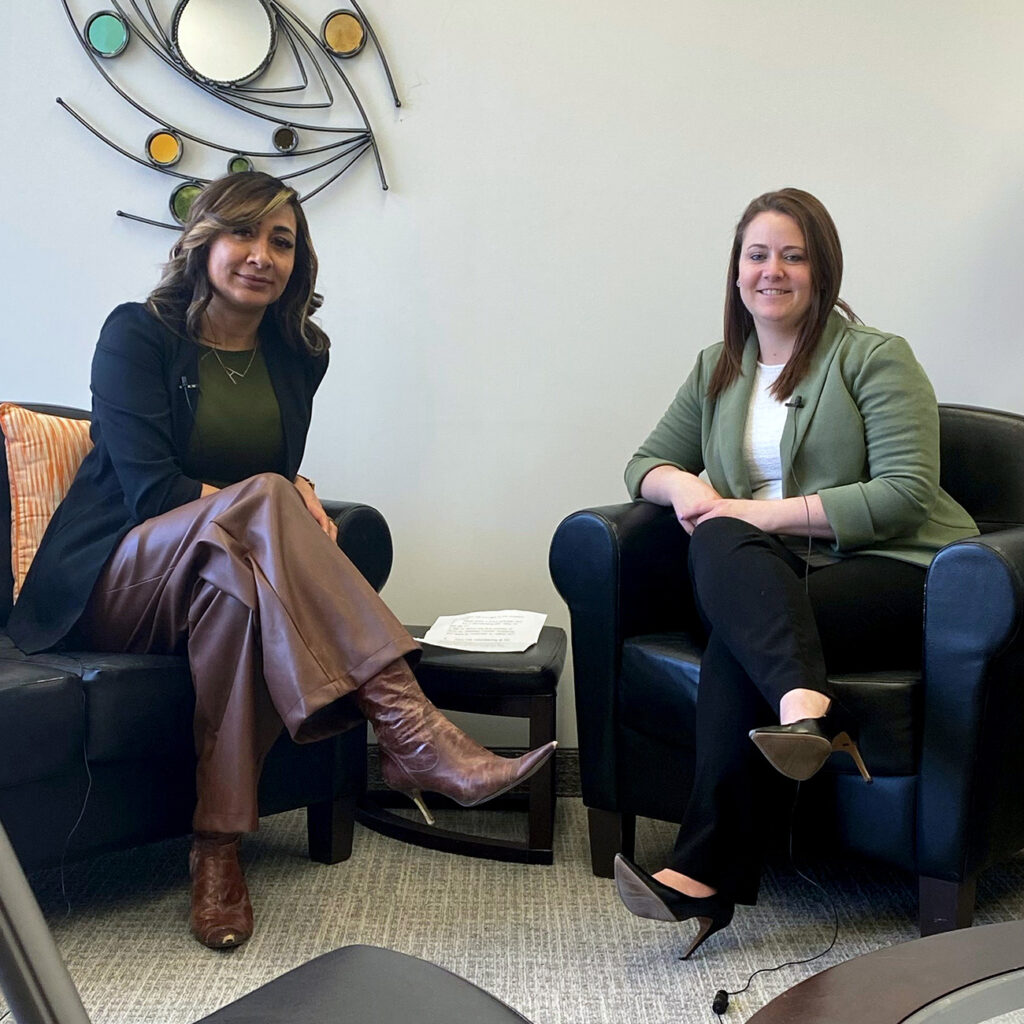Volunteerism and volunteer appreciation with Robyn and Aisha
Distress Centre Calgary CEO, Robyn, and Aisha, Crisis Line Volunteer, reflect on and thank Distress Centre Calgary’s selfless volunteers for their positive impact on the community.
Watch:
Please note that answers have been edited for clarity and length.
Aisha: Good afternoon, everyone. My name is Aisha Sheikh and I am a volunteer here at Distress Centre, and I’m having a conversation with Robyn Romano, the CEO of Distress Centre. Hi Robyn, how are you?
Robyn: I’m good, thanks for coming down and having a chat with me today.
Aisha: Any time.
Q: Why would someone want to volunteer at Distress Centre?
I’ve said it before, to me the volunteers are the heart and soul of what we do as an organization and I get to work with and for the absolute best people that our city has. People that can come in and give of themselves on our crisis lines every day. I just have such admiration for them.
So, when I first started here, I got to work very, very closely with the volunteers. And a lot of people come for very different reasons. A lot, like me, came to the organization because you’re trying to build that professional capacity. I know for me and what I hear from a lot of people who move into being a leadership volunteer is the leadership skills. There’s no better place in our city that I think can help people who are getting into the human services field than an opportunity at Distress Centre.
You get to see firsthand and be a part of firsthand response to supporting others, response to crisis, response to mental health, and get that practical application over time. When I finished my social work diploma, what really kept me and what I hear from a number of volunteers is the skills I developed through my time here that allowed me to show up in my own life differently. And being here taught me the value of human connection. And I think that’s what a lot of people get out of that experience, is that value of human connection, that ability to see things outside of your own worldview.
Q: How did you find the process of applying to become a volunteer and going through the training?
Aisha: I actually brought a friend with me. Her and I both, we volunteer together all the time and we’ve done a lot of volunteering in terms of like Dress for Success, the Syrian refugee crisis and things like that. So, I said, ‘hey, let’s go do this Distress Centre thing. I don’t know what it is, but I think you sit on the lines and you’re answering phone calls and something like that, and I’m not sure, but let’s go do this.’
So, we went through that and then we went to the training, which was for me, the best part of it, because if you were to go out and pay for those courses, you would be charged thousands of dollars. But here you’re going through this extensive training process, and you are actually able to learn all of these skills and then apply them.
Robyn: We are taking our training out there so that people that may not have the capacity or the time commitment to be able to volunteer can still get some of that high quality training that they can take into their workplaces. You don’t get the same practical application of seeing those skills on the lines, but that training is something that I think is valuable to anybody in any walk of life.
Aisha: Truly just the ability to listen. Active listening, which I learned here at Distress Centre, was something that they valued a lot. So, but I promise that anybody who’s volunteering, you get more than what you are giving.
Robyn: I think one of the things that we’ve been really trying to talk about as an organization is how do we just show up in our everyday lives, both in how we show up here at Distress Centre, but even outside of here, of just being compassionate and caring individuals. Like a smile, even just like meeting somebody along the street, passing somebody by with a smile goes a long way.
A hello. A check in. And so, whatever we can do, I think as an organization and what our volunteers can do in taking that out, and it just ripples into all of these areas and really can help us build stronger communities where people feel supported, where people don’t necessarily have to call our crisis line to get supported. And I’m sure there are so many people in our community that are impacted by the work that we do that don’t ever actually even use our services because of the volunteers, because somebody in their lives volunteers at Distress Centre and takes it out with them everywhere they go.
Aisha: And I think learning from those things and really feeling those things to me, I walk out of here every single time lighter, happier and better. Better for it. So, thank you so much. I really appreciate your time today.
Robyn: And thank you. Thank you for your time, commitment and volunteering at a Distress Centre. April is probably my favorite month at Distress Centre because it is Volunteer Appreciation month. So getting to sit down and spend a little bit of time talking about Distress Centre and talking about the role of volunteers is pretty special.
Aisha: Thank you.

